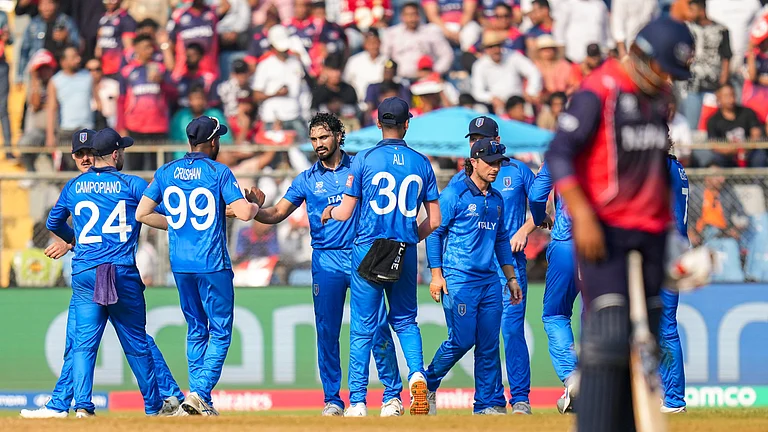On January 9 I was sitting with my friends in a café in Delhi’s known posh Khan Market. I got a call from a Kashmiri friend who is a well-known portrait photographer. Bit sad, he told me about the passing away of the legendary Kashmiri literary figure Rehman Rahi. He is working on a project documenting Kashmir’s iconic people and on the top of the list was Rehman Rahi. Knowing my acquittance with Rahi, he had requested a meeting with him. Forget his meeting with him, even officials from Sahitya Akademi couldn’t meet him, as he had been confined to a room due to his old age and health since the covid outbreak in 2019. Having clicked portraits of iconic and well-known people from across the world for India Today and other magazines he worked for, he regretted and still regrets not having clicked Rahi. These speak volumes about how a certain section of people in Kashmir perceive Rahi.
Ab. Rehman Mir, known as Rehman, died on January 9 this year at the age of 98. He first worked as a clerk in PWD. He then went on to do masters in Persian and then English literature at the University of Kashmir. He then joined the Persian department as faculty and then the department of Kashmiri till his retirement in 1985 there. He was part of the Cultural Congress, an offshoot of the Communist Party, which he later denounced. He was undoubtedly the greatest poet of Kashmir.
Rahi had dozens of books to his credit like Sana-Wani Saaz (poems), Nawrooz-I-Saba (poetry), Kahwat (literary criticism), Baba Farid’s Kashmiri translation etc. He also briefly edited the Kashmiri literary journal Kong Posh and the newspaper Khidmit. He has many awards like Sahitya Akademi, Sahitya Akademi fellowship, Padma Shri and Jnanpith to his credit.
Speaking on Rahi, Kashmir's well-known literary figure Professor Shafi Shoq, who immensely contributed to Kashmiri literature a few years back, said, “I worked as a teacher with late Prof. Rahi for over a decade, but had a close association with him since 1975. I always adored him as one of the most original poets of Kashmiri. His style and approach to life were unique and as such found no imitators. Having an adequate understanding of Persian, Urdu and English literature, he consciously tried to raise the standard of writing, both short poems and ghazal. He sounded very original in his treatment of even surface romanticism and issues of contemporary life. He forced available styles to his individual needs that produced ambiguity to his poetry.”
Kashmir’s known literary figure, author, and critic Ghulam Nabi Khayal in his book Progressive Literary Movement Of Kashmir writes, “Rahi wrote a poem in the 1950s which he had plagiarised from Gorky which he accepted in 2005 and said he had done it at the behest of S.S Chauhan. When Jammu and Kashmir academy of art and culture conducted a function in his honour when he was awarded Jnanpith, Khayal is the same person who said, 'He doesn’t need anything in life if Rahi writes something on him'.”
Rahi as a complex person, given his stature, place and time he lived make us understand Kashmir as a complex and contested space in a better way. As a schoolboy, I walked with my father and his friend in Lal chowk. During our stroll, my father stopped to greet a man, introducing him as Rahi sahab, the renowned doyen of Kashmiri literature. My father then remarked on the simplicity of the great man talking of Rahi sahab’s habit of walking and travelling by bus, a means of public transport.
After a while, I saw him walking outside his home in Soura and was mesmerised by how empathetically he talked to kids and other common people. His friend a conservative religious person began to criticize Rahi sahab for allegedly being a member of the 'No God Federation’. In traditional Kashmir, such people are not well received. He said that Kashmir is cursed because of Rahi sahab and other such comments. This is how I was introduced to Rahi sahab, with two very different perspectives.
In another instance I remember, going for Friday prayers to the Kashmir University masjid with my uncle and his friend on a rainy. Rahi sahab was walking. We stopped and gave him a lift. My uncle’s friend came to the backseat to give him a front seat as a mark of respect. We dropped him to the department of English, where he had come as an expert for a translation workshop. After we dropped him my uncle’s friend started laughing and remarked, "He didn’t come to prayers, he is still an agonist or atheist, when will such people learn despite such knowledge.”
I listened to Rahi speaking in the many seminars university of Kashmir and other places. I remember listening and talking to him at an event organised by the regional unit of the 'Indian Council of Cultural Relations'. Listening to him simply showed how much well-read he was. How many eyes he had on world literature, philosophy and traditions. At a friend's place, in a private gathering he told me he has translated philosopher Fredrich Nietchzche's 'Thus spoke Zurusthra'. Given the time and place of Kashmir, it speaks volumes about him.
When Rahi wrote the anthem of Kashmir University, which discussed the intellectual tradition of Kashmir, he was sharply criticized by religious-political parties and a late prominent separatist leader for not including the name of Mir Sayyed Ali Hamdani, known for the mass conversion, Islamization and his massive role in shaping Kashmir’s society. Later, Rahi in a private gathering said Hamdani was not Kashmiri. Before this, the leader had criticized the state government for including 'Theory Of Evolution' in the textbooks. He was criticized by many people for including the name of Nahru etc in the anthem given their dubious role in the politics of Kashmir also.

I last saw Rahi in 2017 in an iftaar party organized by another separatist leader. The two were very fond of each other. The leader greeted him warmly and expressed gratitude for his presence at such an old age. He went on to say that this was the greatness of Rahi. Despite sharing the same political views on India and Kashmir, the two leaders perceived him differently speaking volumes on Kashmir’s complex and contested space.
Rahi was criticised for taking the Jnanpith award (India’s highest literary award, the first and only Kashmiri writer awarded). He was criticised for not rejecting it as a form of protest against state violence in Kashmir to which he replied, “Award is given by organizations not state”. But the question remains aren't these organizations and institutes extensions of the state? Aren’t these awards given to Kashmiris with certain agenda?
Abir Bazaz in his essay, Learning to read Rahi: A note on the preface to Siya Rode Joren Manz, recounts his meeting with Akhtar Mohiuddin in 1997, a Kashmiri literary figure who had returned his Sahitya Akademi award in protest. During their conversation, Mohiuddin complained about Rahi’s lack of writing about the pain, mourning, and suffering of Kashmir. Rahi had written political poetry like Maafi Naama during Bakshi’s period but was criticised for not writing. Journalist Naseer Ganai echoed this sentiment in a recent article, noting how the poet had requested him not to include his quote in a story on the abrogation of article 370, suggesting it was better to remain silent in the face of state authoritarianism.
In a 2017 interview with Kashmir Ink, Rahi said that his political poetry, such as Khak E Karbala, which he had written in the 1990s, was not published by any paper for being too critical of the state. He also said, “Poets can’t remain aloof from politics, but they shouldn’t become its victims”. Rahi believed this, yet in another interview, he said, “We stood with pen and paper on the banks of a river filled with blood and chose not to see the pristine water turned red."
Despite this, Rahi cannot be dismissed outright, as he was a literary genius who worked tirelessly to promote the Kashmiri language and shape the identity of Kashmiris. With Rahi, Kashmir became relevant in the existential quest for world philosophies. With his passing, Kashmir lost an icon and a literary genius.
(Faizaan Bhat is a columnist based in Srinagar)

























